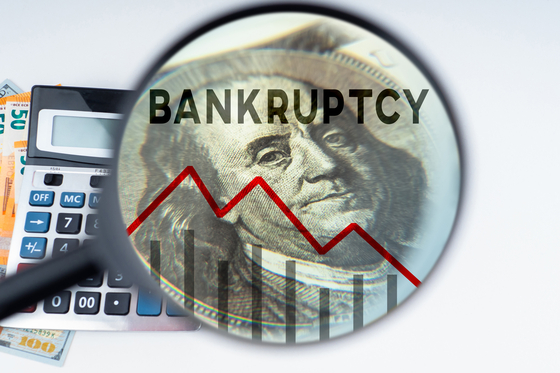[Column] Trust is the most reliable asset for banks
이 글자크기로 변경됩니다.
(예시) 가장 빠른 뉴스가 있고 다양한 정보, 쌍방향 소통이 숨쉬는 다음뉴스를 만나보세요. 다음뉴스는 국내외 주요이슈와 실시간 속보, 문화생활 및 다양한 분야의 뉴스를 입체적으로 전달하고 있습니다.

Lee Sang-ryeol
The author is an editorial writer of the JoongAng Ilbo. Banks are indispensable in a market economy. Without banks acting as the intermediary and supplier of capital, an economy cannot run. Even if they are ruined, they cannot be removed immediately, as seen in the 2008 meltdown. A global financial crisis followed when troubled Lehman Brothers was left to go under according to market principles.
Banks are once again going down in a chain in the United States and Europe. Credit Suisse (CS) Group, No. 2 in Switzerland, with 167 years of history, has been forced to merge with the bigger UBS Group. The marriage was enforced by the Swiss authorities, who could not leave unattended one of its mighty banks famous for client confidentiality. In the U.S., it was start-up cradle Silicon Valley Bank (SVB) that went bankrupt.
The collapses of the two major banks were both triggered by bank runs. As soon as SVB disclosed its liquidity troubles, as much as $42 billion were withdrawn the following day. CS received an emergency fund of $54 billion from the Swiss central bank, but it could not withstand after losing $10 billion in a single day. Fueling the bank run was mobile banking that enabled withdrawals and wiring in large sums.
The sudden fall of the two powerful banks offers a poignant caveat. A bank that loses confidence always suffers a run. But in the digital age, the speed is even faster. Deposits can ebb out within hours.
Mobile banking is a part of everyday life for Koreans. In January 2019, employees of KB Kookmin Bank went on strike. The top lender worried about the apparent inconvenience for its customers from the first strike in 19 years. But it needed not, as most people were not even aware of the strike in the bank. The lion’s share of consumer banking, or 86 percent, was actually done by mobile or online platforms or ATMs.
The strike ended up in failure as it only proved banks had excess manpower. Mobile banking has become more commonplace. A mobile bank run could pose as a risk to local banks, as individuals can withdraw up to 500 million won ($382,848) a day on mobile platforms open 24 hours, and news can go viral instantly through social media and chat platforms.

[SHUTTERSTOCK]
Our banks assure us of their sound integrity. But CS and SVB both collapsed despite their relatively low delinquency rate. SVB invested its capital mostly in U.S. Treasury bonds and other long-term safe assets. Despite a string of scandals, CS also had sufficient reserves. Still, it was identified as a weak spot of the European banking system by international financial markets. When a bank becomes a target of collective panic, it can quickly lose customers and shareholders and find itself in a liquidity crisis.
A bailout is not so easy as in the past, either. Governments cannot easily come to the rescue due to the political risk of losing faith with taxpayers. U.S. Treasury Secretary Janet Yellen made it clear that “no losses associated with the resolution of Silicon Valley Bank will be borne by the taxpayer.” If a bank cannot be bailed out, a buyer must come forward. This is why the Swiss authorities dumped CS on UBS. The U.S. government also is eagerly looking for SVB’s buyer. A merger and acquisition carries a price: overlapping businesses and banking outlets must be integrated and redundant staff should be dismissed. A report projected the merger of UBS and CS could cause a layoff of 9,000 employees.
If a Korean bank runs into a crisis, a bailout also may not be easy. Above all, taxpayers won’t happily agree to the public rescue of banks which profiteered from high interest rates and celebrated themselves with hefty bonuses. The government will likely choose M&As, but it will cause layoffs of a number of employees in banks.
Korean banks who play safe with their primary income coming from interest rates must not let down their guard against the risk of spillover. Global liquidity woes easily catch up on Korean financial markets. The government role has become crucial. U.S. and Swiss authorities moved as fast as the bank run. The time has come for our government and banks to gauge how much they are trusted by the market. It will be too late if they take actions after a crisis hits them.
Copyright © 코리아중앙데일리. 무단전재 및 재배포 금지.
- Twice's Chaeyoung apologizes for wearing shirt with Nazi swastika
- Actors Hyun Bin, Son Ye-jin to take legal measures against fake news
- Gratitude keeps Ateez grounded after world tour, Paris fashion week appearance
- U.S. Chips Act offers some comfort to Korean chip makers
- Nude model Ha Young-eun bares all with her first book
- Authorities to monitor market with caution after Fed's rate increase
- Harry Styles successfully entertains during his first show in Seoul
- Stocks end higher Tuesday on expectations Fed will take less-tough stance
- Baby Garden cult drops injunction request against Netflix
- Tomorrow X Together, NewJeans to perform at Lollapalooza 2023 in Chicago